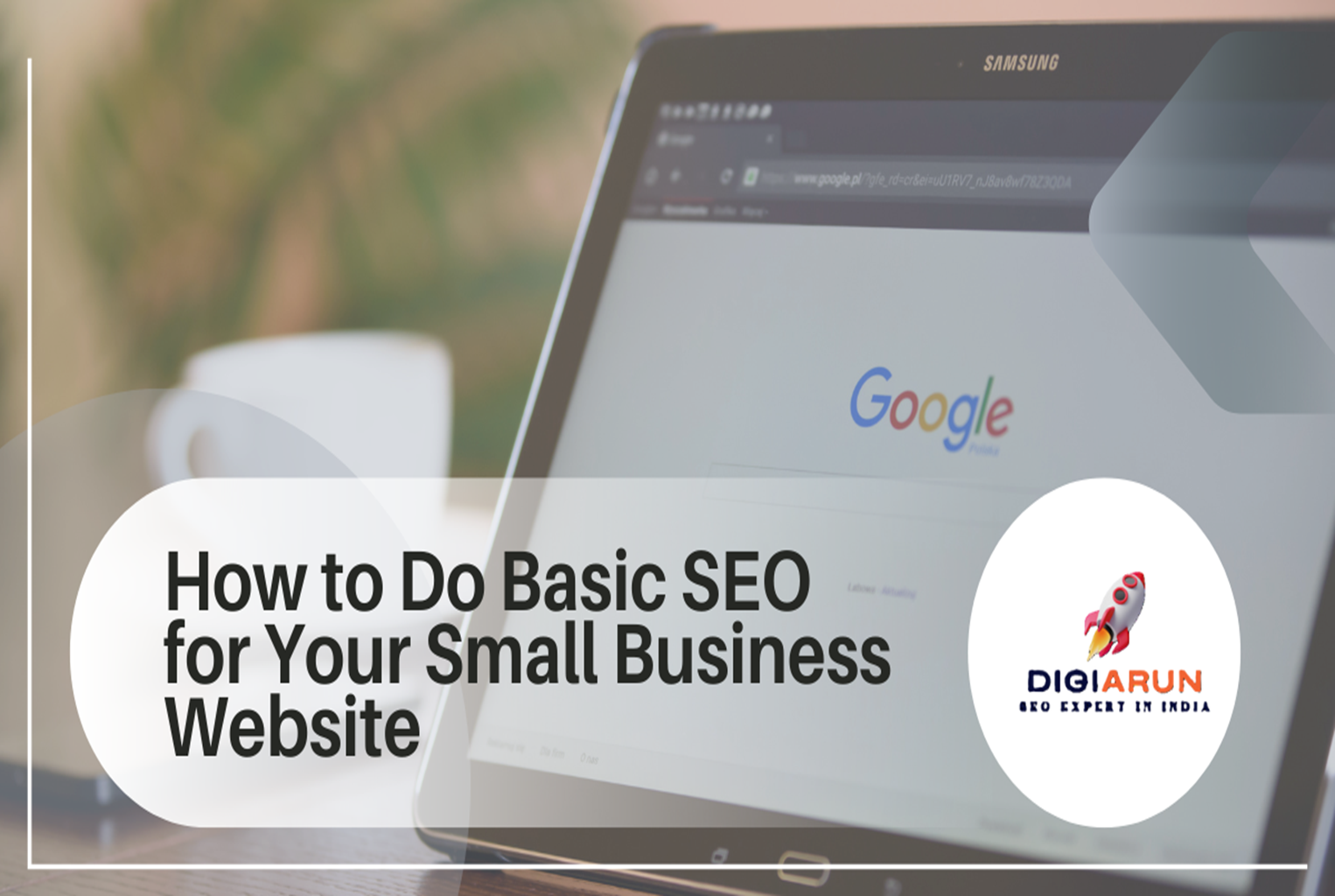
Want your small business website to rank higher on Google without hiring a big agency?
This simple step-by-step guide will help you understand the basics of SEO (Search Engine Optimization) so you can attract the right visitors, build credibility, and grow your brand organically — even if you’re just starting out.
Let’s begin with the foundation.
Steps to Do Basic SEO for Your Small Business Website
Follow the steps for optimizing your client’s small business website:
Step 1: Set Up the Foundation
Before optimizing, make sure your website is ready for growth.
✔ Choose the right platform:
If you haven’t already, build your website using an SEO-friendly CMS like WordPress, Shopify, or Squarespace. These platforms make it easy to edit meta tags, add blogs, and install plugins for SEO.
✔ Connect SEO tracking tools:
- Google Analytics – tracks who visits your site and how they interact.
- Google Search Console – monitors your site’s performance in Google search and alerts you to issues like broken links or indexing errors.
👉 Tip: Set up both tools early. This gives you valuable data that helps improve your strategy over time.
Step 2: Do Smart Keyword Research
Keywords are the heart of SEO — they tell Google what your page is about and help match you with the right audience.
How to find them:
- Use Google Keyword Planner, Ubersuggest, or Ahrefs to discover what people are searching for.
- Choose long-tail keywords (specific phrases) like “affordable bakery in Delhi” instead of broad ones like “bakery.”
Focus on intent:
Think like your customer.
What would they type when they’re ready to buy or learn?
💡 Example:
Instead of “SEO services,” target “affordable SEO services for small businesses in Delhi.”
This helps you reach motivated, high-intent users.
Step 3: Optimize Your On-Page SEO
Once you’ve chosen your keywords, it’s time to use them correctly.
Here’s what to optimize:
- Title Tag:
Keep it under 60 characters and include your target keyword near the start.- Example: “Affordable SEO Services for Small Businesses | Digi Arun”
- Meta Description:
Write a 150–160 character summary that encourages clicks.- Example: “Learn how small businesses can improve rankings with step-by-step SEO from Digi Arun.”
- Headings (H1, H2, H3):
Use one H1 for the main title and H2/H3 for subtopics. Naturally include keywords where relevant. - Internal Linking:
Link to related pages (e.g., your SEO Expert in Delhi page) to improve navigation and topical authority. - URL Structure:
Keep URLs clean and readable:- ✅ example.com/seo-tips-for-small-business
- ❌ example.com/p?id=12345
Step 4: Create Useful, Engaging Content
Content is what keeps visitors on your website — and what Google ranks.
Create:
- Blog posts that answer customer questions
- Service pages that explain your offerings clearly
- FAQs to cover common queries
Focus on E-E-A-T principles — Experience, Expertise, Authoritativeness, Trustworthiness.
Google (and AI models) love original insights, practical tips, and content written by real experts.
Pro Tip: Update old content regularly — it signals freshness to Google and keeps readers engaged.
Step 5: Optimize for Local SEO (Especially Important for Delhi Businesses)
If your business serves a specific city or region, Local SEO is a must.
How to do it:
- Create or claim your Google Business Profile (GBP).
- Add accurate business info: name, address, phone number, website, and hours.
- Upload real photos and encourage customer reviews.
- Use location-based keywords, like “best dentist in South Delhi” or “SEO consultant near Connaught Place.”
👉 Don’t forget local directories like JustDial, Sulekha, or Yelp — consistent listings boost credibility.
Step 6: Improve Technical SEO and Mobile Experience
Even great content won’t rank if your site is slow or hard to use.
Check these key areas:
- Mobile-friendliness: Your site must adapt well to all screen sizes.
- Loading speed: Use tools like PageSpeed Insights to fix slow pages.
- SSL Security: Always use HTTPS to protect user data.
- Navigation: Keep your site’s structure clean and easy to crawl.
Bonus: Compress large images and use caching plugins (like WP Rocket) for faster load times.
Step 7: Build Authority with Backlinks
Backlinks (links from other websites) are like trust votes for your site.
Ways to get them:
- Guest post on reputable blogs in your niche.
- Collaborate with influencers or partners.
- Submit to relevant business directories.
- Create shareable resources (like checklists, guides, infographics).
⚠️ Avoid paid or spammy links — they can hurt your SEO in the long run.
Step 8: Track, Measure, and Keep Improving
SEO isn’t a one-time task — it’s an ongoing process.
Use these reports to track progress:
- Google Analytics 4: Traffic sources, top-performing pages, and conversions.
- Search Console: Keyword rankings, click-through rates, and crawl errors.
Review monthly:
- Which keywords improved?
- Which pages dropped in traffic?
- Are new leads coming from organic search?
Then refine your content, fix broken links, and keep experimenting with new strategies.
Final Thoughts
Doing SEO for your small business website may seem complex at first, but once you follow these eight steps consistently, you’ll start seeing results.
Start small — stay consistent.
Even optimizing one page per week can make a huge difference over time.
If you ever feel stuck or want expert help, you can always reach out to a professional — like Digi Arun – SEO Expert in Delhi — for personalized guidance and a free SEO audit.
